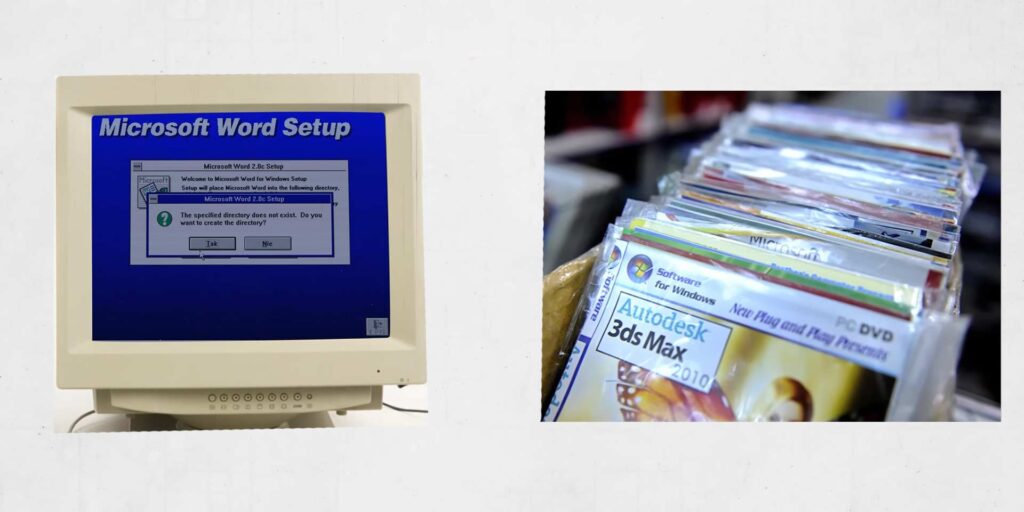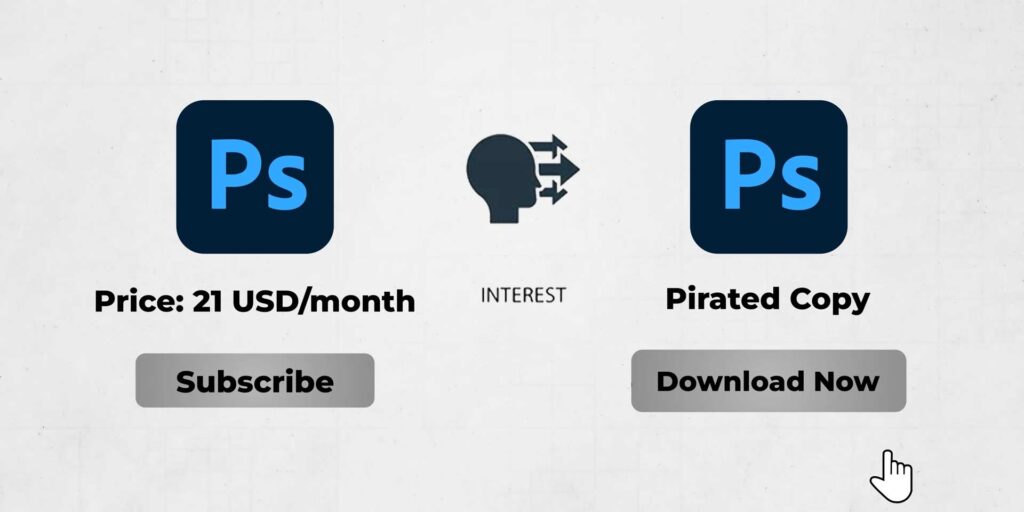Table of Contents
Globally, there is reluctance among customers to buy genuine software or games or to take subscriptions to ott platforms and SaaS. Particularly in South Asian countries such as India, Pakistan, and Bangladesh, a large population has long been accustomed to downloading software, movies, or games for free.
According to a Microsoft study, pirated software powers almost 90% of computers in the Indian subcontinent. Apart from software, movies, or games, they also aren’t interested in buying and using online courses and smartphone apps. Every year, nearly 230 billion video views come from piracy. On the other hand, content piracy from streaming services is the highest, accounting for almost 80 percent of total piracy.
In Bangladesh, very few people legally use premium software, games, streaming services, or SaaS platforms. But why exactly are people more interested in using these services for free than spending money to receive them?
Overview
In the late 90s, the use of personal computers in Bangladesh gradually increased. Bangladesh Computer Council’s IDB building was the country’s only computer and accessories market at that time. At that time, most PCs purchased at the consumer level were clone PCs. Clone PCs used pirated versions of Microsoft Windows as the operating system.
In addition to Windows, almost all of the other installed software was cracked too. So, it can be said that the Bangladeshi people did not know that software must be bought and used. Because back then, anyone could buy a pirated version CD of any premium software from any computer store at a cheap price.

Since the middle of the first decade of the twenty-first century, as internet usage in the country increased, people started downloading pirated versions of various premium software from multiple websites. Moreover, people have started downloading movies and games from different FTP servers and torrent sites.
Since the Global Financial Crisis in 2008, cloud-based and software companies have gradually started moving to subscription models. Cloud companies like Salesforce, NetSuite, and OTT platforms like Netflix have begun to adopt the subscription model. Currently, software like Microsoft Office to Adobe’s creative software, VPN, and workflow management happen to run on a subscription model.
In addition, various SaaS platforms and streaming services, Edtech platforms, and Games with in-app purchases have a one-time payment system as well as subscription options according to convenience. But even though all the software services have moved to the subscription-based model, why are Bangladeshi people not yet interested in using original software, content, or digital services through purchase?
Why Less Interested In Paid Service?
Nowadays, there is a practice among people to buy subscriptions for various software, streaming services, or SAAS platforms, but for a long time, people used to use most of the offline software from the store on a pen drive. Ever since the Internet became available in Bangladesh, people started downloading cracked versions of various software from movies, series, songs, and books from different websites, forums, torrent sites, and FTP servers at home.
Even today, apart from torrent or FTP servers, pirated software, and content are being distributed very easily through apps like Telegram. However, access to torrent sites is prohibited in many countries worldwide, and some countries have strong laws against piracy. But, the law enforcement against piracy in Bangladesh is relatively low. Since there are so many free and available options to download pirated software, movies, and songs, it did not help to create the mentality of buying software or subscription among Bangladeshis.
Many people think that when they can use software for free, why then need to spend money? Due to some limitations in the cracked software, some users may upgrade to the premium version at some point, but the amount will be minimal.

Using software such as Word, Excel, and PowerPoint requires a subscription to Microsoft 365, which costs around $70 or more than 6000 BDT. On the other hand, Adobe’s Creative Cloud software charges $10 to $20 per month separately for each subscription. Many people do not want to spend this much money on these services. Even sometimes, many can’t avail of these services with so much money.
Besides, making direct payments for these services from Bangladesh is also a hassle because one needs a US currency card to pay for these international services from Bangladesh. Due to this, many Bangladesh users do software piracy or resort to credential or password sharing. In the case of cloud-based software or platforms, a common tendency of using multiple people by sharing the same user account password is prevalent worldwide, and Bangladesh is no exception. Sharing User IDs and passwords is not legal but very common for OTT and SaaS platforms.
Nowadays, people’s mindset is changing about purchasing software or subscriptions. Now, many people have international payment cards in US currency with which they can buy genuine software like Microsoft 365, Adobe, SAAS services like Ahrefs, Grammarly, and cloud storage like Google Drive, Mega, etc. In addition, purchasing subscriptions to international streaming platforms and domestic OTT platforms is also rapidly increasing at the consumer level.
Furthermore, the number of Edtech platforms in the country has also increased recently, from which many students are purchasing courses and taking lessons. In addition to these, in-game purchases of games such as PUBG, Minecraft, Fortnite, etc., and the trend of buying games from Steam and Origin are also increasing. This shows people’s reluctance to buy paid software or subscriptions is changing.










Leave a Comment